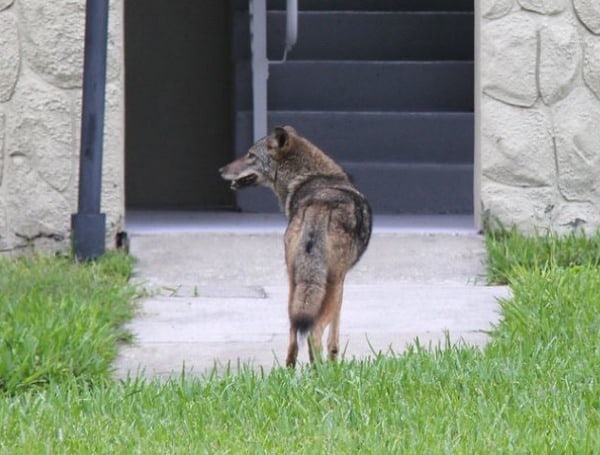The Florida Fish and Wildlife Conservation Commission (FWC) is reminding Florida residents and visitors to protect pets and backyard animals from becoming prey to coyotes and other wildlife as reports of interactions with these animals generally increase this time of year.
“Coyotes are found throughout Florida and they are part of the landscape,” said Greg Kaufmann, FWC Wildlife Assistance Program Administrator. “There is a strong possibility coyotes are in your community, even if you are living in an urban part of the state.”
Coyotes occur throughout the eastern United States and can be found in all 67 counties in Florida including rural, suburban and even urban areas. They thrive in natural habitats but are incredibly adaptable and will also live in urban environments where there is available food.
To help avoid conflicts with coyotes and other predators, take proactive measures by removing food sources including unsecured trash and pet food, and securing pets and small livestock as they can become prey to coyotes. These actions will help protect your animals and help deter coyotes from repeatedly coming into your yard or community.
Unaccompanied small pets such as dogs and cats that are left outdoors can be preyed upon by wildlife. Protect small pets by keeping them indoors or in an outdoor predator-proof pen.
“Cats should be kept inside for their protection as well as to protect songbirds and other native wildlife cats prey upon” said Kaufmann. “When walking dogs, keep them on a short leash, especially at night, dusk or dawn, and be extra careful when walking your pet in wooded areas.”
As feasible, people should also take necessary precautions to shelter animals, such as goats, sheep, calves, pigs, poultry and other small livestock, from coyotes and other predators. Small livestock can be protected by keeping them in a secure fenced enclosure with a roof, especially at night. Electric fencing is also an effective deterrent to prevent wildlife from preying on domestic animals.
Here are additional tips for preventing conflicts with coyotes:
- Never feed coyotes and do not place food outside that will attract coyotes or other wildlife. It is illegal to feed coyotes in Florida in a manner that is likely to create or creates a public nuisance.
- Clean up pet food, fallen fruit and seed around bird feeders – coyotes are opportunistic feeders and can be drawn to these types of food sources.
- Secure garbage cans and compost in animal-proof containers.
- Encourage wildlife to nest or den in natural areas by closing off crawl spaces under houses and other buildings to prevent them from resting or raising their young in areas around your home.
- Talk with your neighbors and ask them to follow these same steps.
The most effective ways to reduce problems with coyotes involve removing food or other attractants. However, if a coyote has lost its fear of humans or continues to be a problem, other control measures may be necessary. Such methods should be directed at specific coyotes or toward coyotes in a specific area.
For technical assistance regarding coyotes near your home or in your neighborhood, contact the nearest FWC regional office by going to MyFWC.com/Contact and clicking on “Regional Offices.” Additional information on coyotes can be found by going to MyFWC.com/Wildlife and clicking on “Living with Wildlife” then “Coyotes.”
